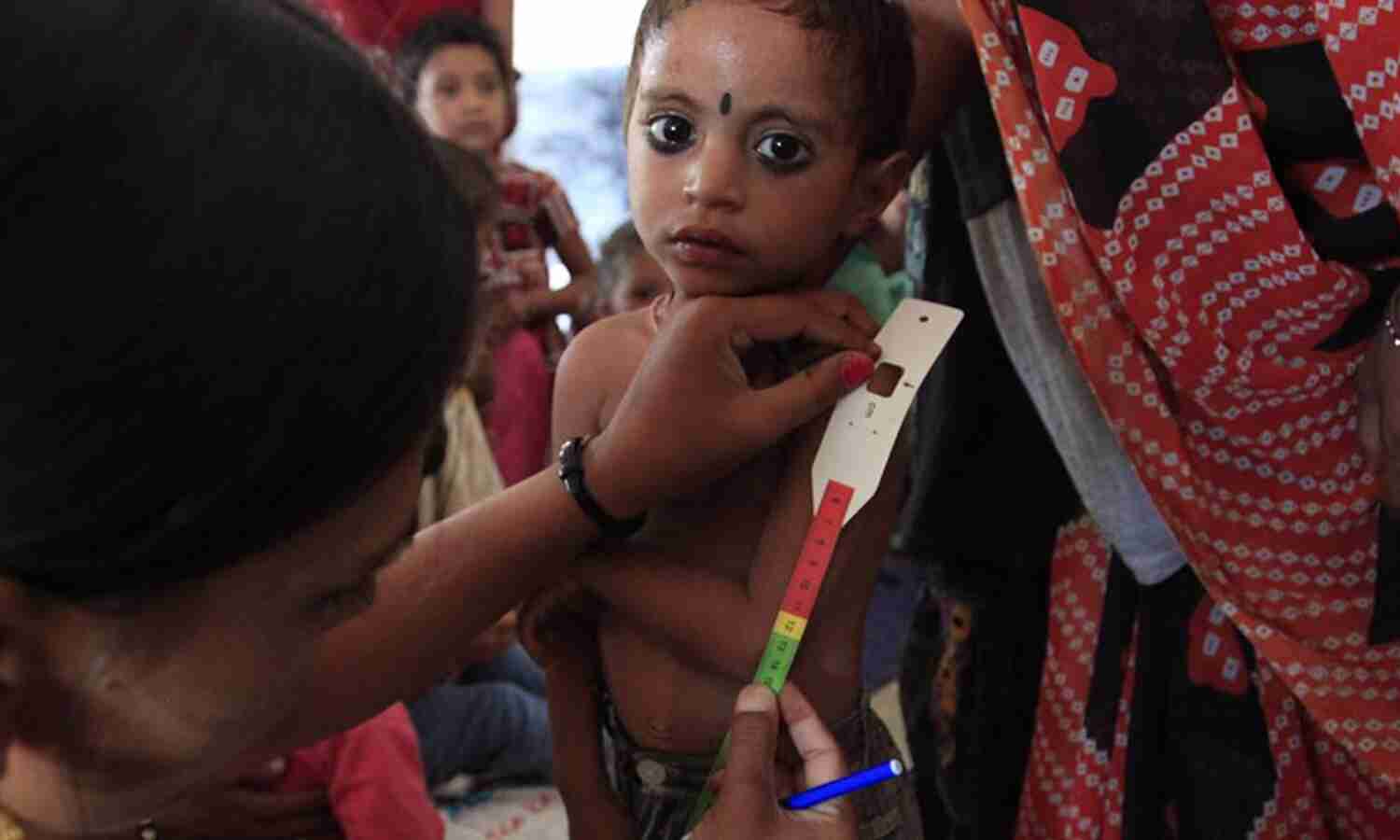In 2015-16, Anganwadis Served More Children Than A Decade Ago But Achieved Limited Outcomes

New Delhi: More children in India than a decade ago received one or more services under the Integrated Children Development Services (ICDS), the world’s largest integrated early childhood programme to reduce child mortality by giving supplementary nutrition, especially to malnourished children, and improve early learning outcomes.
However, the programme failed to achieve desired outcomes like changing feeding behavior of a family and improving the quality of preschool education, according to this December 2017 evaluation paper of the programme by Nirmala Rao, professor at Hong Kong University and V Kaul of Centre For Early Childhood Education and Development at the Delhi-based Ambedkar University.
About 54% children--up from 33% a decade ago--under six years received at least one of the various services provided in anganwadi centres (courtyard shelters, AWCs) under ICDS, according to the latest national health data published in the final report of the National Family Health Survey, 2015-16 (NFHS-4), released on January 12, 2018.
The provision of food supplements is the service most likely to be used (48%) by children, up from 26% in 2005.
Food supplements include both distribution of take-home Panjeeri (a nutritional supplement made from whole-wheat, sugar, ghee and dried fruits) and cooked meals at AWCs.
Established in 1975 under ICDS, 1.3 million AWCs provide health, nutrition, and education services--distributing food supplements, pre-school education, health check-ups, immunisation and growth monitoring--for children from birth to six years.
About 1.4 million anganwadi workers are involved with the programme in India.
As many as 11 states and four union territories have not announced any change in additional salary paid to anganwadi workers and anganwadi helpers since 2015, IndiaSpend reported on February 23, 2018.
Nearly 40% children received immunisation, 39.7% received health check-ups, 38.2% received early childhood care/pre-school services, up from 20%, 15.8% and 22.8% a decade ago, data show.
In a country home to 190 million undernourished people--the highest in the world--ICDS plays a vital role but has been able to achieve limited outcomes, according to the 2017 study.
Lack of educated workers, less focus on quality of services and lack of resources are among the primary reasons for limited outcomes, the study found.
Budget allocations to the programme also hint at the lack of political will, said the paper.
The government has allocated Rs 15,240 crore (about $2.3 billion) for anganwadi services in Budget 2018, Rs 600 crore less than the 2013 budget allocation of Rs 15,800 crore (about $3 billion).
“On paper, it is an excellent and contextually relevant scheme, but implementation of the scheme had not been accorded adequate priority, perhaps due to weak institutional capacity and/or a lack of political will,” said the paper.
Correction: An earlier version of the story erroneously used the words 'creche' and 'anganwadi' interchangeably. We regret the error.
(Tripathi is a principal correspondent with IndiaSpend.)
We welcome feedback. Please write to respond@indiaspend.org. We reserve the right to edit responses for language and grammar.


